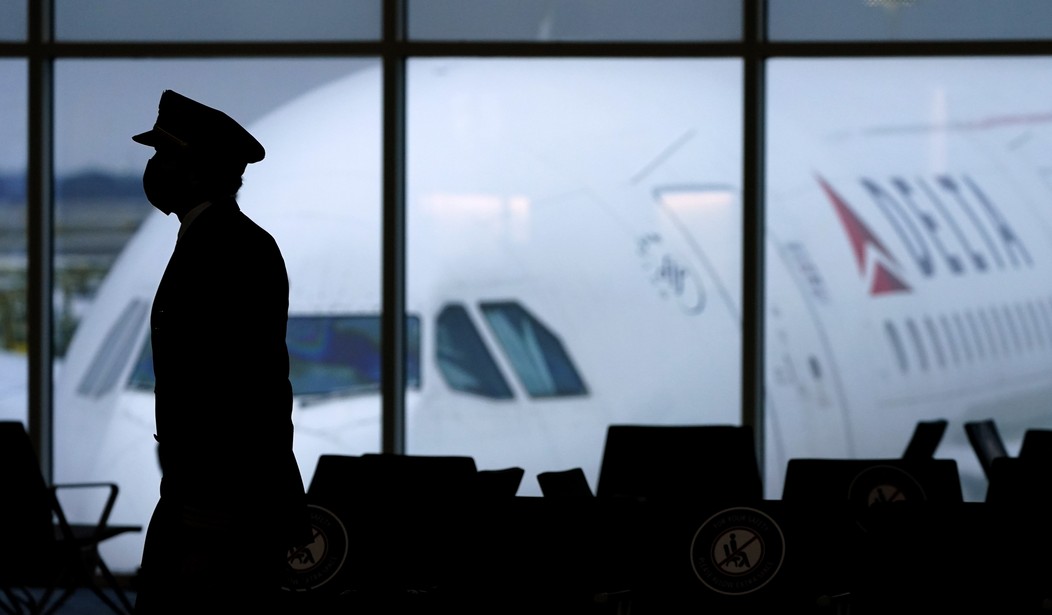The Department of Homeland Security (DHS) postponed the full implementation of the Real ID Act Tuesday. The act requires all travelers to present a travel-compliant Real ID driver’s license before boarding domestic flights and entering some federal buildings. The Real ID deadline has been delayed from Oct. 1, 2021, to May 3, 2023.
Congress passed the Real ID Act back in 2005, one of the bills passed in response to the terrorist attacks of September 11, 2001. Its purpose is to standardize criteria used by states when issuing driver’s licenses and other state IDs. The first postponement came last year due to the pandemic. The bill was supposed to go into full effect by October 1, 2020, but was pushed back to October 1, 2021. Now the second postponement takes the deadline to May 3, 2023. The pandemic has changed how licensing agencies do business, at least for now.
The pandemic has caused many state licensing agencies to shift to appointment-only service. The DHS said that has “significantly limited states’ capacity to issue Real ID-compliant drivers licenses and identification cards.”
The agency estimated that 43% of all state-issued driver’s licenses and identification cards nationwide are Real ID-compliant.
“As our country continues to recover from the COVID-19 pandemic, extending the Real ID full enforcement deadline will give states needed time to reopen their drivers licensing operations and ensure their residents can obtain a Real ID-compliant license or identification card,” Alejandro N. Mayorkas, secretary of Homeland Security, said in a press release.
If, like me, you didn’t even realize that you need an updated kind of security denotation on your driver’s license for travel, it is easy enough to check if your id complies. Look at the top right corner of your driver’s license. Is there a gold star? If so, your license is Real ID-compliant and you’re good to go. If not, you’ll need to upgrade your license or provide another form of travel-compliant identification before boarding a plane. There are quite a few alternatives that are accepted instead of a driver’s license.
According to the TSA website, all of these are Real ID travel-compliant:
U.S. passport.
U.S. passport card.
DHS trusted traveler card (Global Entry, Nexus, Sentri, FAST).
U.S. Department of Defense ID, including IDs issued to dependents.
Permanent resident card.
Border crossing card.
State-issued enhanced driver’s license.
Federally recognized, tribal-issued photo ID.
HSPD-12 PIV card.
Foreign government-issued passport.
Canadian provincial driver’s license or Indian and Northern Affairs Canada card.
Transportation worker identification credential.
U.S. Citizenship and Immigration Services employment authorization card (I-766).
U.S. Merchant Mariner Credential.
Frankly, I didn’t realize all of this was happening. I checked my driver’s license and I saw the little gold star in the right corner. I never noticed it before today, though.
The U.S. Travel Association and the Airports Council, two trade groups, are happy with the deadline extension.
“Getting to Real ID compliance on time was already going to be a challenge before COVID shut down DMVs for extended periods,” Tori Emerson Barnes, the U.S. Travel Association executive vice president for public affairs and policy, said in a statement. “Significant travel disruption was likely if the deadline were allowed to hit, which the U.S. economy can’t afford after a $500 billion decline in travel spending last year and millions of travel jobs lost to the pandemic.”
The Airports Council International-North America, which represents commercial airports in the U.S. and Canada, also supported the move.
“Extending Real ID requirements until May 2023 will help provide additional time to educate travelers and ensure they have the ability to more easily apply to obtain REAL ID-compliant identification so they will be ready to travel,” president and CEO Kevin M. Burk said in a statement.
Children under the age of eighteen who are traveling with their parents aren’t required by the TSA to have the enhanced id. Just to be safe, though, it is suggested that you check with the airline before traveling. More bureaucracy, more headaches.
DHS is extending the REAL ID full enforcement deadline until May 3, 2023. On that date, air travelers 18+ will need a REAL ID compliant license, or another acceptable form of identification, to pass through @TSA security when flying within the U.S. https://t.co/Pz2SoAeOYF
— Homeland Security (@DHSgov) April 27, 2021
From the replies to that tweet, I’m not the only person who wasn’t even aware of the new requirement. The bill was passed in 2005 and won’t be fully implemented until 2023 with the latest extension. Seems like that little gold star probably isn’t so necessary after all, if it doesn’t matter that it will take eighteen years to implement.








Join the conversation as a VIP Member